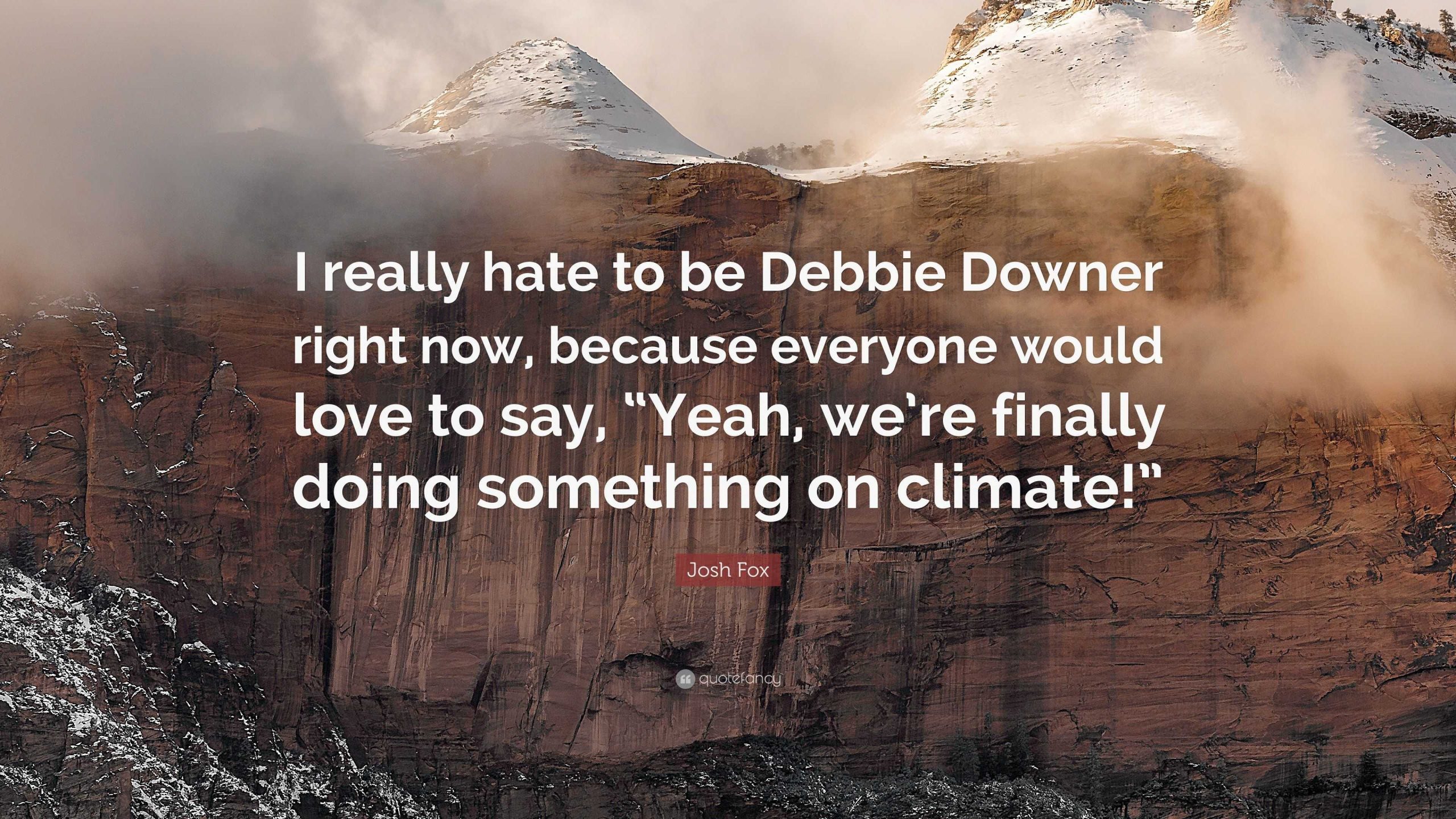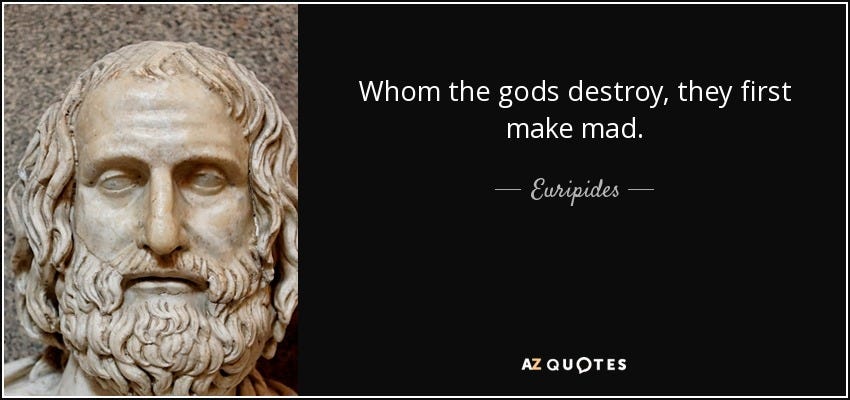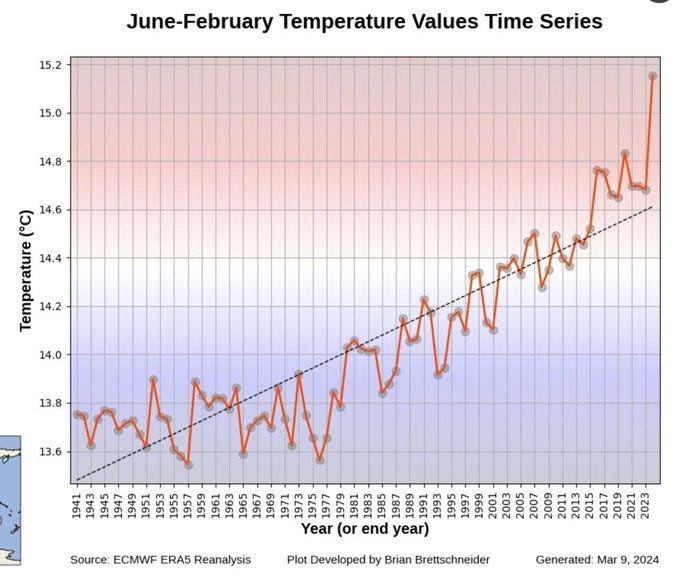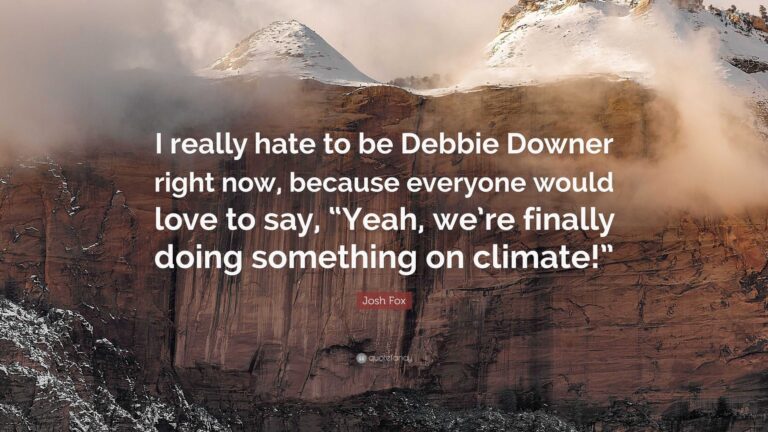This is Yves. At its core, our denial of the serious and much-anticipated impact of climate change is a lot like our denial of death. Except for the devoutly religious and those who have had near-death experiences, most of us don’t want to think seriously about death or climate change. So, as readers may have inferred, I’m not big on hope. Hope, as opposed to realism, too often produces inadequate actions, like the rainbows and unicorns of the Green New Deal.
By Thomas Neuburger. Originally published on God’s spies
Even if much is taken, much remains; and yet
We are no longer the force that once
Earth and sky moved, what we are, we are
—Alfred Lord TennysonAll your crying is for nothing
Come to the house
Come down from the cross, we can use the wood
Come to the house
—Tom waitsDoes death make life less sweet?
-Your humble servant
I’ve been wanting to write for a while about how we might respond to the coming climate disaster, the Jackpot, in the words of William Gibson. Respond to what will be, in terms of world history, the most important global event since the birth of brains and the culture we call it.
I started this project with a few paragraphs here And here. But I wanted to give these thoughts a proper page.
The desire to offer hope
Let’s start with Thisfrom scientist Kate Marvel:
As a climate scientist, I am often asked to talk about hope. In today’s political climate, the public wants to be told that everything will be okay in the end. And, unfortunately, I have a deep need to be liked and a natural tendency toward optimism that leads me to accept more invitations to speak than is good for me. Climate change is bleak, organizers always say. Tell us a happy story. Give us hope. The problem is that I don’t have one.
“Give hope” is the constant warning in the climate world. Consider this from Kaitlin Naughton, a scientist with the British Antarctic Survey, in writing to The Conversation: “The conventional wisdom is that we are supposed to give people hope: that there is disaster behind one door, but that we can avoid it if only we choose another. »
This is more than a preconceived idea. The strategic argument is this: if you depress people with depressing words, they will shut down and stop taking action. We need people to act. (Implied: because we can still win, let’s preserve high-energy life.)
And it almost becomes a moral admonition, a subject for examination of values and, sometimes, shame. “Don’t talk about the millions lost (of dollars, of lives). Let’s talk about the gains: new jobs, a greener economy. Don’t be Debbie.
This is all very good. But what if it seems to you, as it seems to more and more peoplethat the the spell has been cast? Are you lying? Performing cheerleader duty? Or acknowledge the truth (as you and your audience can see it) and offer, not hope, but something truer to the facts?

Facts on the ground
The fact is that we are doing nothing about the climate. You noticed that, didn’t you?
And you have noticed, I hope, the reason: that we – that is to say both parties – are governed by (I must say) money-crazed psychopaths who have put a lock on the entire electoral processSince debate has access to ballots, ensuring that only a candidate fueled by money can win. (Yes, Trump was a candidate fed on money in 2016.)

Those whom the gods would destroy, they first make mad. There is more than enough hubris in our power-mad superiors to sink us all. Even if the climate didn’t stare us in the face, how long will it take us to solve this problem? This decade? This century?
But the climate East staring us in the face, a tsunami almost visible even to the blind.

What do we tell people when they start to wake me up? What do we say when they understand there is no going back?
We can tell them that while hope is a dream, courage is something they can do.
“We need courage, not hope.”
Here’s what Kate Marvel, the aforementioned climate scientist, recently wrote. First, she lays out the problem (emphasis mine throughout):
I have lived a lucky, charmed and loved life. This means that I have infinite, gullible faith in the goodness of the individual. But I have absolutely none in the collective. Otherwise, how could it be that the total sum of so many small acts of kindness, is a world incapable of stopping something so eminently stoppable? California is burning. Islands and coasts are destroyed by hurricanes. At night, the stars are blotted out by city lights and the world is illuminated by the flickering ugliness of reality TV. We burn coal, oil and gas, without worrying about the consequences. …
There is now no weather we have not touched, no wilderness safe from our encroaching pressure. The world we knew will never return.
It’s speaking more honestly in public than most people like her would. (In private, most know the truth. They panic.)
And the answer:
And here, the sheer scale of the problem provides a perverse comfort: we are in this together. The speed of change, its magnitude and its inevitability bind us into one broken heart, trapped together under a warm atmosphere.
We need courage, not hope. After all, grief is the price you pay for being alive. We are all destined to live a life full of sadness and we are worth no less. Courage is the determination to succeed without the assurance of a happy ending.
There is joy in working together
We are in the same boat. The Romans have crossed the border. Our elders may escape through death (thinking of you, Charles G. Koch), but those in their thirties will see the children of people like them living lives decidedly different from ours.
Scary things happen; they happen all the time. And just as good people disappear, so do civilizations. There are miracles in the world, but we cannot summon them.
What we can to do is to give the best of ourselves – our wisdom, our love, the example of a courageous response – to those who share our burden and our sorrow.
“What we are, we are,” said Ulysses of Tennyson. And that’s not nothing, as long as we have life left. We can do it together, deliberately associated with this task. There is joy in these actions, which we will carry within us despite the beast at the gates.
I would rather have that, the ability to act courageously, than to live in unjustified hopes. To begin with, it’s better for others who maybe need wood.



